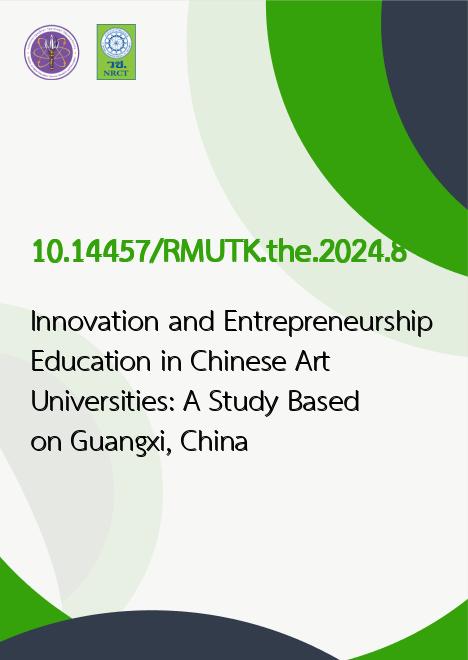
|
Innovation and Entrepreneurship Education in Chinese Art Universities: A Study Based on Guangxi, China |
|---|---|
| รหัสดีโอไอ | |
| Title | Innovation and Entrepreneurship Education in Chinese Art Universities: A Study Based on Guangxi, China |
| Creator | Huang, Guangfeng |
| Contributor | Anyanwu, Clinton Chidiebere |
| Publisher | Rajamangala University of Technology Krungthep |
| Publication Year | 2567 |
| Keyword | Entrepreneurship education, Innovation Education, Training Art College Students, Guangxi of China |
| Abstract | Innovation and entrepreneurship education is a vital and long-term initiative aimed at nurturing students' innovative thinking, entrepreneurial awareness, and practical entrepreneurial abilities. For art college students, who already possess strong creative thinking and expressive capabilities, this education becomes especially significant. However, artistic talent alone is insufficient for successful entrepreneurship in today’s competitive society. To address this gap, it is essential to integrate entrepreneurship education with quality and professional education, thereby strengthening students’ comprehensive skills, promoting their professional development, and providing them with hands-on experience. This paper examines the theoretical foundations and practical implications of innovation and entrepreneurship education, with a focus on art college students in Guangxi, China. The first section outlines key concepts, background, and global research trends, establishing a theoretical framework for the study. The second section emphasizes the importance of such education in higher education institutions to meet societal demands, foster talent development, and address employment challenges. The third section presents a data- driven analysis based on a survey conducted among art college students in Guangxi, alongside successful case studies from the Guangxi Employment and Innovation Guidance Center. This analysis identifies existing issues in the current educational approach and their root causes. The final section proposes targeted strategies to improve the innovation and entrepreneurship education system for art colleges, including curriculum reform, practical training, and collaborative efforts among schools, government, and industry. The paper advocates for a holistic, multi-channel education model combining theory with practice to better prepare art students for sustainable career development and societal contribution. |
| Language | EN |
| URL Website | http://dspace.rmutk.ac.th/ |
| Website title | คลังความรู้ UTK |